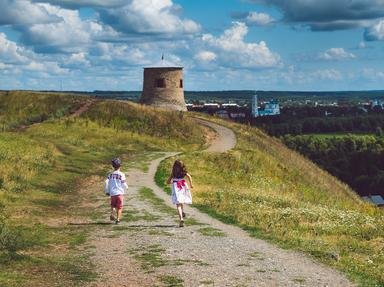Quiz Answer Key and Fun Facts
1. Law Code
2. Amassed a great empire that covered three continents
3. Built First Temple in Jerusalem
4. Architect of first pyramid
5. Insignificant pharaoh with an important tomb
6. Great Persian king
7. Founder of monotheistic Hebrew nation
8. First emperor of China, began the building of the Great Wall
9. Great philosopher and teacher
10. Built the Hanging Gardens
Source: Author
ponycargirl
This quiz was reviewed by FunTrivia editor
NatalieW before going online.
Any errors found in FunTrivia content are routinely corrected through our feedback system.

